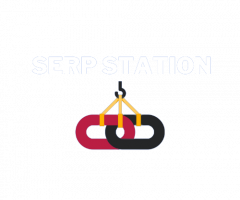On-page SEO is one of the most important factors for ranking your website in search engines. It is the process of optimizing your web pages to make them more search engine friendly.
There are a number of on-page SEO factors that you need to be aware of.
Here are 12 of the most important on-page SEO ranking factors guide:
1. Title Tag
Your title tag is one of the most important on-page SEO factors. It is the title of your web page and it appears in the search engine results pages (SERPs).
Make sure that your title tag is descriptive and includes your target keyword. Keep it under 60 characters so that it doesn’t get cut off in the SERPs.
2. Meta Description
Your meta description is the short description of your web page that appears in the SERPs. Like your title tag, your meta description should be descriptive and include your target keyword.
Keep your meta description under 160 characters so that it doesn’t get cut off in the SERPs.
3. URL Structure
Your URL structure should be clean and include your target keyword. Avoid using dynamic URLs (URLs that include &, ?, =, etc.) as they are not as search engine friendly.
4. Header Tags
Header tags (H1, H2, H3, etc.) are used to structure your content and make it easy to read. They are also used by search engines to understand the structure of your content.
Make sure to use header tags and include your target keyword in at least one of them.
5. Image Optimization
Make sure to optimize your images for the search engines by including keywords in the file name and alt text. This will help your images rank in the image search results.
6. Internal Linking
Internal linking is the process of linking to other pages on your website. This helps search engines crawl your website and helps improve your website’s overall ranking.
Make sure to add internal links to your content and use keywords as the anchor text.
7. External Linking
External linking is the process of linking to other websites. This helps search engines understand what your website is about and can also help improve your website’s ranking.
Make sure to add external links to high-quality websites and use your target keyword as the anchor text.
8. Keyword Density
Keyword density is the number of times a keyword appears on a web page. It is important to strike a balance with keyword density as too many keywords on a page can be seen as keyword stuffing which can result in a penalty from Google.
A good rule of thumb is to keep your keyword density between 1-3%.
9. Mobile-Friendliness
Mobile-friendliness is becoming increasingly important as more and more people use mobile devices to access the internet. In fact, Google is now using mobile-friendliness as a ranking factor.
Make sure your website is responsive and mobile-friendly. You can use Google’s Mobile-Friendly Test tool to check if your website is mobile-friendly.
10. Page Speed
Page speed is the speed at which a web page loads. It is important for both users and search engines. Users are less likely to stay on a website that takes a long time to load, and search engines are less likely to rank a slow website.
Make sure your website loads quickly by optimizing your images, using a caching plugin, and using a good web hosting company.
11. Schema Markup
Schema markup is a code that you can add to your website to help search engines understand your website better. It is used to provide information about your website, such as your business hours, reviews, and contact information.
Adding schema markup to your website can help improve your website’s click-through rate (CTR) in the SERPs.
12. Social Sharing
Social sharing is the process of sharing your content on social media websites. This can help improve your website’s traffic and ranking.
Make sure to add social sharing buttons to your content and include social media follow buttons on your website.
These are 12 of the most important on-page SEO factors that you need to be aware of. If you optimize your web pages for these factors, you will be well on your way to ranking higher in the search engines.

